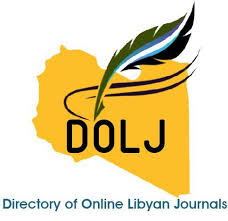Knowledge, Attitude and practices about diabetes among Diabetic Libyan population.
DOI:
https://doi.org/10.54361/ljmr15.1.05Keywords:
Knowledge, attitude, practices, diabetes mellitusAbstract
Back ground: KAP studies are highly focused evaluations that measure changes in human knowledge, attitudes and practices in response to a specific intervention usually for, demonstration or education. Aim of study: to investigate and evaluate the knowledge, attitude and practices of diabetic patients regarding diabetes, and it's management. Patients and Methods: Across sectional involving 385 diabetic participants in National Diabetic & Endocrine center (Tripoli), from Jan 2010 until April 2010 selected by systemic random. The data was collected by using the KAP questionnaire developed by the researcher's face to face interview after obtaining a verbal consent. Which included details, about sociodemographic, questions regarding knowledge , beliefs , and practices in different topic of diabetes. Results: the study reported 385 participants, 58.7% females, and their age ranged from 20 - 7oyears and above, with mean age 49 ± 14.5 years, The duration of diabetes was ranged from one year to 35 years with a mean 10.7 ± 5.5 years.. the overall mean (±SD)scores of the participants was 37.5±6 knowledge score, 6±2.1 attitude score, 10.3±2.8 practices score, with maximum scores for knowledge, attitude, practice scorepractipants being 50 , 8 ,16.Respectively.There is a significantly weak positive correlation between knowledge and attitude (r=0.137) and between knowledge, and practices (r=0.136). Similarly, there is a weak positive correlation between attitude and practices (r=0.121). Conclusion: the knowledge, attitude, and practices scores of the participants were good in general, and had sufficient knowledge about diabetes, but less in attitude and practices. But although of that, we still need for further educational intervention for all
Downloads
References
World health organization,(2006) Guide lines for prevention ,management and cares of diabetes mellitus, WHO; 35-75.
Ministry of health and environment(2009), results of surveillances of risk factor for non-communicable disease, Tripoli Libya. William.H.Herman W et al.(1995) Diabetes mellitus in Egypt: risk factors and prevalence. Diabetic Medicine, 12:1126-1131.
Adibah H, Idris MN osmanali(1998).perception and behaviour of diabetic patients on blood glucose maintenance. Int. J Diab. Dev. Countries; 18:71-74.
World Health Organization (1985)study group on diabetes mellitus. Geneva, World Health Organization, (WHO Technical Report Series No.727).
Stratton M.(2000) Association of glycaemia with macrovascular and microvascular complications of type 2 diabetes (UKPDS 35): prospective observational study. British medical journal, , 321(7258): 405–12.
The Diabetes Control and Complication Trial Research Group(1993). The effect of intensive treatment of diabetes on the development of progression of long-term complications in insulin-dependent diabetes. New England journal of medicine, , 329(14):977–86.
UK Prospective Diabetes Study (UKPDS) Group(1998). Intensive blood glucose control with sulphonylureas or insulin compared with conventional treatment and risk of complications in patients with type 2 diabetes (UKPDS 33). Lancet, , 352(9131):837–53.
Tan AS, Young LS, Wan S, Wong ML, et al(1997). Patient education in the management of diabetes mellitus. Singapore medical journal, , 38(4):156–60.
Sivaganam G, Namasivayam K, Rajasekaran M, et al(2002). A comparative study of the knowledge, beliefs, and practices of diabetic patients cared for at a teaching hospital (free service) and those cared for by private practitioners (paid service). Annals of the New York Academy of Sciences, , 958:416–9.
Hawthorne K, Tomlinson S(1997). One-to-one teaching with pictures-flashcard health education for British Asians with diabetes. British journal of general practice, , 47(418):301–4. 13(5):276–83.
Ruzita T, Osman A, Fatimah A et al.(1997) The Effectiveness of group dietary counelling among non-insulin dependent diabetes mellitus (NIDDM) patients in resettiement scheme areas in Malaysia. Asia pacific Jclin. Nutr; 2: 84-87.
Rafique G, Azam S.I, F, White. (2002) Diabetes knowledge, beliefs And practices among people with diabetes attending aunverisity hospital in Karachi, Pakistan (Pakistan study).
Ambigapathy R, Ambigapathy S, ling HM.(2003)Aknowledge, attitude. And practice (KAP) study of diabetes mellitus among patients attending klinikkesihatanserimanjung. NCD Malaysia;2:6-16. (Malaysia study).
Upadhay. DK. Palaians, P.Ravisuhankar,(2007).knowledge, Attitude practice about diabetes a among diabetes patients in western Nepal November 26.
Mohand, Raj D etal,(2005).awareness and knowledge of diabetes in Chennai (the Chennai urban Rural Epidemiology study) CURES.a JAPI. Vol; April; 286-50.
Kenneth D, Julian C, B.R Hopkins,(1990) Educational and Psychological Measurement and Evaluation, seventh edition; ch 5 test reliability 132-133, ch 11, assessment of objectives from instruments,293.
W. Danil, Biostatistics: Afoundation for Analysis in the health sciences, sixth Edition, Estimation ch6, 180.
Lee LF. A KAP(2000-2001) (Knowledge, Attitude, and Practice) study among women with history of gestational diabetes in the prevention of type 2 diabetes in University Malaya Medical Centre, Kuala Lumpur. (unpublished).
C H Ding , C L Teng, CN Koh.(2006).Knowledge of Diabetes Mellitus Among Diabetic and Non-Diabetic Patients in KlinikKesihatanSeremban 2004. Med J Malaysia Vol, 61, No, 4, October.
N. Nisar, I. Ahmad Khan, M. HafeezQadri, S. AzamSher,(2008).Knowledge and Risk assessment of diabetes mellitus at primary care level; Pakistan Journal of medical science October- December (part 1) vol, 24,no,5, 667-672
Z. Saadia, S. Rushdi, M. Alsheha, H. Saeed& M. Rajab: (2010)A Study Of Knowledge Attitude And Practices Of Saudi Women Towards Diabetes Mellitus. A (KAP) Study In Al-Qassim Region. The Internet Journal of Health. Volume 11 Number 2.
H.Al-geed, R.Al-okka, B. Greer, A.yousif, N.Kheir.(2010).knowledge, Attitude, and practices of diabrticQateri patients, Qateriunveristysidra medical &Research centre, Hamad General hospital, Doha, Qater.18-4-.
kapur A,(2001) . Influence of socio-economic factors on diabetes care. Int J Diab Dew Countries;21:77-85.
Knowler WC et al.(2002). The Diabetes Prevention Programme Research Group. Reduction in the incidence of type2 diabetes with lifestyle intervention or metformin. New England Journal of Medicine, 346:393-403.
Tuomilehto J, Lindstrom J, Eriksson JG, et al. (2001).Finnish diabetes Prevention study Group. Prevention of Type 2 diabets mellitus by changes in lifestyle among subjects with impaired glucose tolerance. N Engl J Med;344:1343–50.
Li G, Hu Y, Yang W, et al.(2002). Effects of insulin resistance and insulin secretion on the efficacy of interventions to retard development of type 2 diabetes mellitus: the DA Qing IGT and diabetes study .diabetesResClin Pract;58:193-200.
Mull DS, Nguyen N, Mull JD.(2001). Vietnamese diabetic patients and their physicians: what ethnography can teach us. West-ern journal of medicine, 175(5): 307-11.
Anderson RM et al .(1991). Barriers to improving diabetes care for blacks. Diabetes care, 14(7):605-9.
Diabetes Care, (2008).volume31, supplement1,January; S22.
Ruggiero Let al.(1997). Diabetes self management. Self reported recommendations and patterns in a large population. Diabetes care
Downloads
Published
Issue
Section
License
Copyright (c) 2021 Aida Elkituni , Ahmad Albouny, Mohamed Albaccush, Laila Elsabei (Author)

This work is licensed under a Creative Commons Attribution-NonCommercial-NoDerivatives 4.0 International License.
Open Access Policy
Libyan journal of medical Research (LJMR).is an open journal, therefore there are no fees required for downloading any publication from the journal website by authors, readers, and institution.
The journal applies the license of CC BY (a Creative Commons Attribution 4.0 International license). This license allows authors to keep ownership f the copyright of their papers. But this license permits any user to download , print out, extract, reuse, archive, and distribute the article, so long as appropriate credit is given to the authors and the source of the work.
The license ensures that the article will be available as widely as possible and that the article can be included in any scientific archive.
Editorial Policy
The publication of an article in a peer reviewed journal is an essential model for Libyan journal of medical Research (LJMR). It is necessary to agree upon standards of expected ethical behavior for all parties involved in the act of publishing: the author, the journal editorial, the peer reviewer and the publisher.
Any manuscript or substantial parts of it, submitted to the journal must not be under consideration by any other journal. In general, the manuscript should not have already been published in any journal or other citable form, although it may have been deposited on a preprint server. Authors are required to ensure that no material submitted as part of a manuscript infringes existing copyrights, or the rights of a third party.
Authorship Policy
The manuscript authorship should be limited to those who have made a significant contribution and intellectual input to the research submitted to the journal, including design, performance, interpretation of the reported study, and writing the manuscript. All those who have made significant contributions should be listed as co-authors.
Others who have participated in certain substantive aspects of the manuscript but without intellectual input should only be recognized in the acknowledgements section of the manuscript. Also, one of the authors should be selected as the corresponding author to communicate with the journal and approve the final version of the manuscript for publication in the LJMR.
Peer-review Policy
- All the manuscripts submitted to LJMR will be subjected to the double-blinded peer-review process;
- The manuscript will be reviewed by two suitable experts in the respective subject area.
- Reports of all the reviewers will be considered while deciding on acceptance/revision or rejection of a manuscript.
- Editor-In-Chief will make the final decision, based on the reviewer’s comments.
- Editor-In-Chief can ask one or more advisory board members for their suggestions upon a manuscript, before making the final decision.
- Associate editor and review editors provide administrative support to maintain the integrity of the peer-review process.
- In case, authors challenge the editor’s negative decision with suitable arguments, the manuscript can be sent to one more reviewer and the final decision will be made based upon his recommendations.














